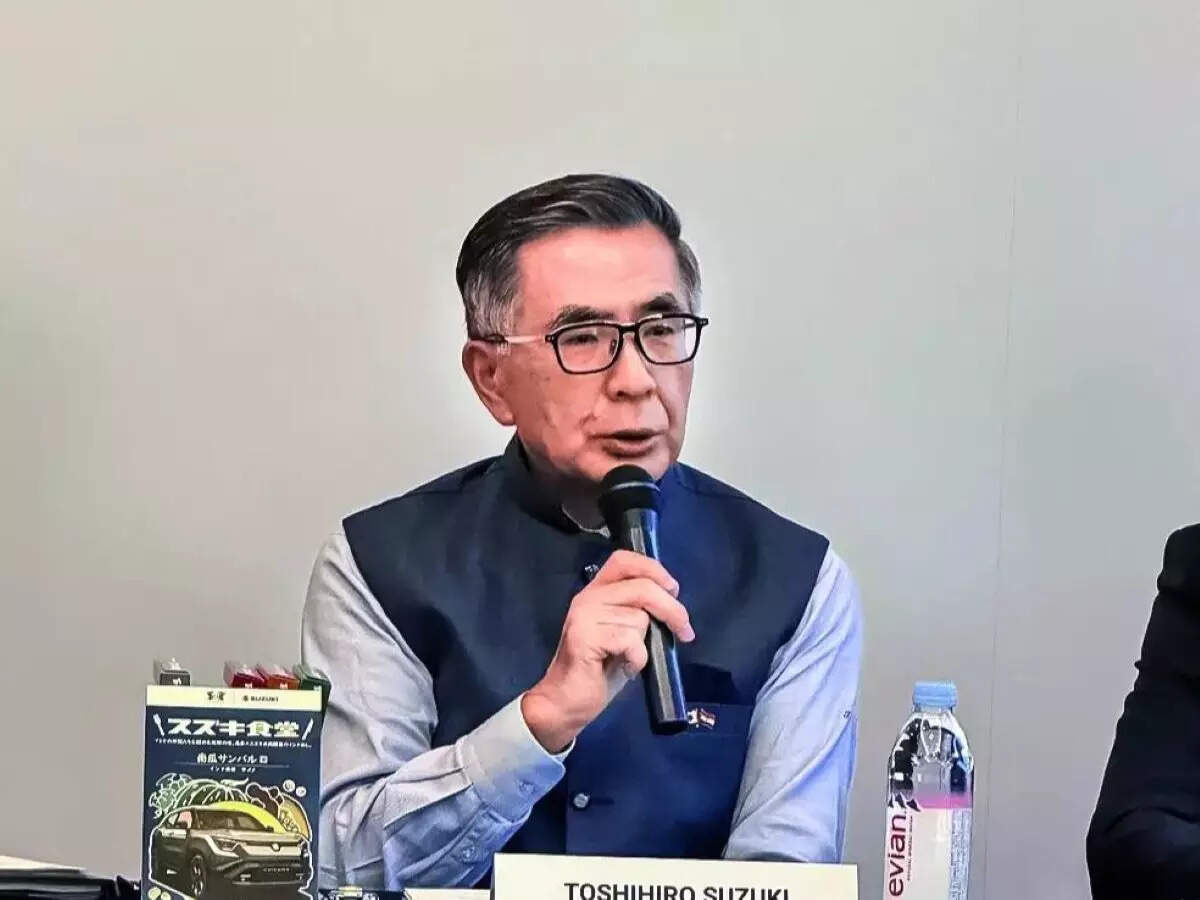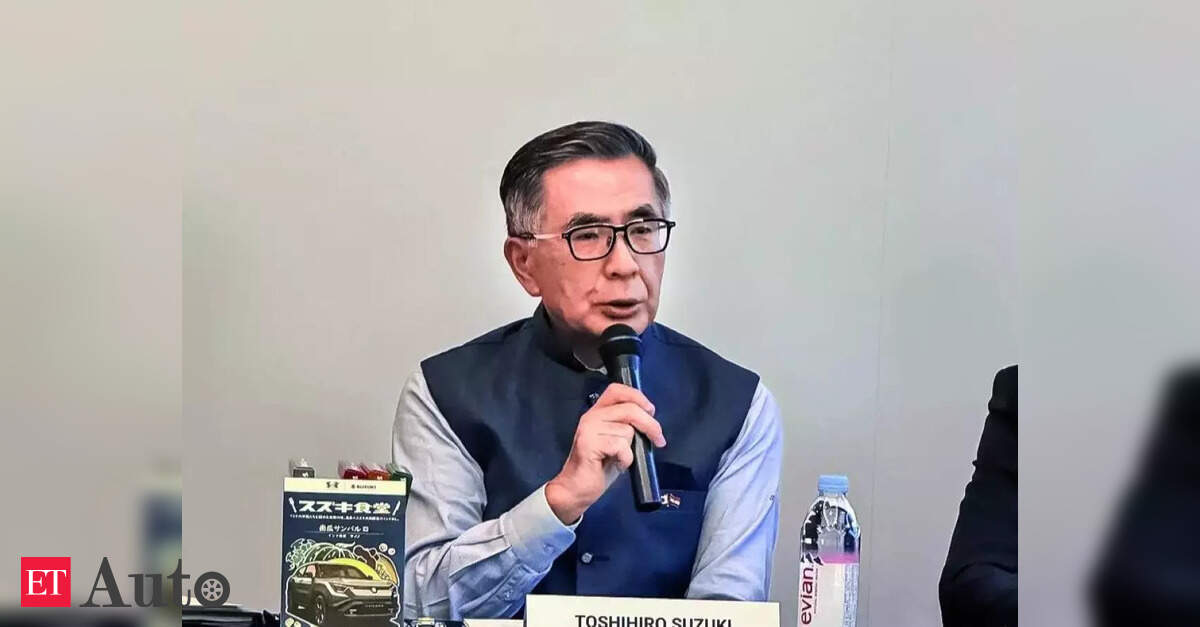
Suzuki Motor Corp is aiming to regain its 50 per cent share of India’s passenger vehicle market by 2030 though the automaker admitted that the journey would be tougher now than in the past four decades. Toshihiro Suzuki, representative director and president of Suzuki said unit Maruti Suzuki India will introduce eight new SUVs over the next five to six years, expanding the lineup to 28 models. Maruti would renew focus on small cars following the recent goods and services tax (GST) cuts besides advancing its multi-fuel strategy with nine biogas plants to be set up in India by 2027 to support upcoming bio-CNG models. “Getting to the 50 per cent market share will be tougher than what it has been in the past 40 years,” Suzuki said, underlining the scale of the challenge ahead for India’s top carmaker. He was speaking to Indian media on the sidelines of the ongoing Japan Mobility Show.
Suzuki’s comments come amid heightened competition from rivals. Maruti held a 48 per cent market share in FY21, which fell to 43 per cent in FY22, remained steady at 43 per cent in FY23, before slipping to 42 per cent in FY24, and further to 41 per cent in FY25.
Maruti’s small car business, which had been losing traction, has gained momentum after the GST cuts from September 22. “We are thankful to the Indian government for measures that support small car demand,” Suzuki said, noting the step will likely prompt Maruti and other automakers to expand offerings in this segment.
Pointing to India’s unique energy advantage, Suzuki said the country’s vast land area allows for water-based power generation and ethanol production, which Maruti Suzuki plans to harness in line with its multi-fuel strategy. “India has regions suitable for hydro power and ethanol production,” he said. “This gives us the opportunity to launch products aligned with our multi-fuel strategy and support the country’s energy transition.” He emphasised that the multi-fuel push is part of a broader strategy to combine business growth with sustainability, reflecting the company’s long-term commitment to India. The nine planned biogas plants will fuel upcoming bio-CNG models, supporting the transition toward cleaner energy solutions. Reiterating India’s strategic importance, he highlighted the planned ₹70,000 crore investment and doubling of capacity to 4 million vehicles by 2029-30. “India is critical to our growth story,” said Suzuki.



